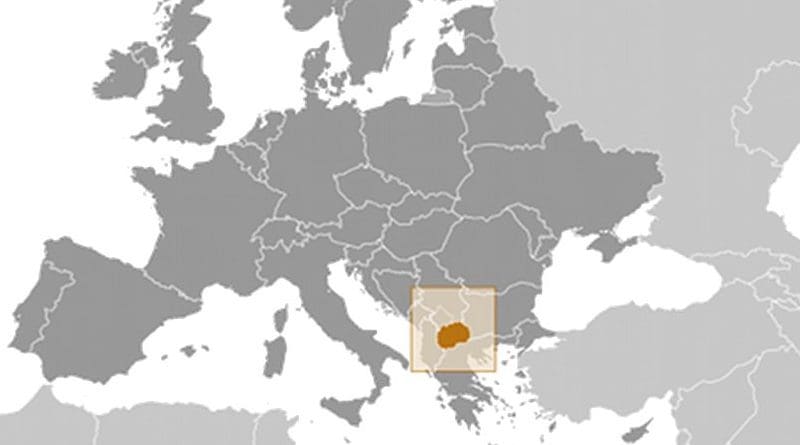Macedonia Albanians Mull Joint Platform For Government
By Semra Musai
The junior ruling party in the last government, the Democratic Union for Integration, DUI, which won 10 of the 120 seats in parliament in the December 11 polls, has said it will wait for the final official election results before inviting all the main ethnic Albanian parties to discuss a common platform.
“First we will negotiate with the Albanian parties and afterwards with the Macedonian parties,” DUI spokesperson Bujar Osmani said.
The official results should be known after Sunday’s re-run in one polling station, which could change the overall election result by potentially evening out the number of seats won by the main ruling VMRO DPMNE party and main opposition Social Democratic Union, SDSM.
A new Albanian party, Besa Movement, which won five seats in the elections and so became the second biggest party in the Albanian bloc, said it had not received any offer from the DUI as yet.
“We have not had any invitation [from the DUI]. We have our platform and goals over which we are ready to cooperate with every political party in Macedonia,” Bilall Kasami, the head of Besa, said on Thursday.
Ziadin Sela, head of the DPA – Movement for Reforms, said it was a historic chance to unite on a platform which would advance the position of all Albanians who make up about a quarter of the population of the country.
DPA – Movement for Reforms won three seats in the election.
“The DUI should invite all [Albanian] party leaders to a joint table so we can act mutually and impose [demands] on the Macedonian bloc. It is a historic moment for us to solve some open issues that are important for Albanians,” Sela told Alsat TV.
Ethnic Albanian parties in Macedonia appear to hold the key to the formation of a new government that will need the support of at least 61 of the 120 MPs in parliament.
VMRO DPMNE and the SDSM have 51 and 49 seats respectively, if Sunday’s election re-run in one polling station does not change the result.
Many observers have called on Albanians parties to be careful about committing themselves to a new government, if they want to advance the Albanian agenda in the country.
The DUI’s platform for the new government calls for Albanian to be made an official language on the entire territory of the country. Albanian is currently an official language only in those areas where Albanians make up a significant proportion of the population.
The DUI also seeks decision-making based on ethnic consensus in every institution, including parliament, as well as economic equality for Albanians, meaning a proportional division of the country’s budget along ethnic lines.
Other requests are to prolong the mandate of the Special Prosecutor, a body formed last year to investigate high-level crime.
Besa also has three preconditions for the new government and says it will not join any government containing politicians who are in any way incriminated or even suspected of offences by the Special Prosecutor.
Besa also wants a redefinition of the juridical and constitutional system of the country, and says any new agreement on a government coalition must be transparent.
DPA – Movement for Reforms is committed to what it calls a bi-national state as well as a law making the Albanian language official throughout the entire country and equal allocation of budget funds.
The Democratic Party of Albanians, DPA, which won only two seats, has not clarified its position although its leader has indicated it will support Besa’s negotiating positions.
Peter Vanhoutte , an EU expert engaged in the negotiations between the country’s main four parties on the so-called Przino Agreement, called on Albanian parties not to participate once again in a government where they risk being “completely sidelined”.
“Yes, you had some Ministers and even a deputy Prime Minister. But for all important decisions, you were overruled by your coalition partner,” Vanhoutte stressed, addressing the past experience of the DUI.
Observers say the ruling VMRO DPMNE party of former Prime Minister Nikola Gruevski will have a harder time negotiating terms with Albanian parties this time, as so much of its election campaign focused on chanelling anti-Albanian sentiment.
The SDSM on the other hand at these elections for the first time in Macedonian history attracted the votes of tens of thousands of Albanians, calling for unification against VMRO DPMNE whom they accused of authoritarian rule.
– See more at: http://www.balkaninsight.com/en/article/macedonia-albanians-mull-joint-platform-for-government-12-22-2016#sthash.OYZjf4y2.dpuf

